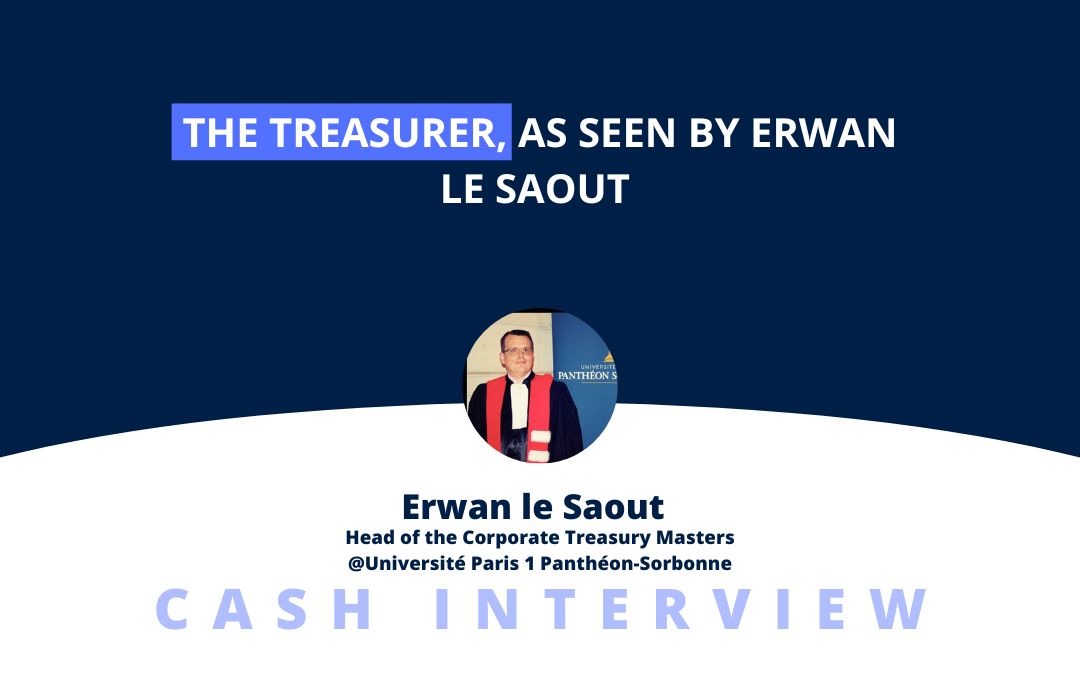The treasurer
Erwan Le Saout is a senior lecturer qualified to direct research. He is director of the Master in Corporate Finance and the Master in Corporate Treasury that he founded at the University of Paris 1 Panthéon-Sorbonne. He gives CashLab an interesting view of the Treasurer's job and theevolution of the function since the turning point in 2008. He also talks about how, as Master's Director, he is adapting to provide teaching that is always in line with the state of the art.
The creation of the Corporate Treasury Masters
The master's degree in corporate treasury was created in 2008 with the collaboration of the French association of corporate treasurers. Coincidentally, according to many treasurers, there is a before and after 2008 for the treasury profession. The collapse of Lehman Brothers brought the treasurer's role within the company to the fore.
Since then, the function has taken on strategic importance within the company and is becoming increasingly cross-functional.
Here is the breakdown of graduates of the Master in Corporate Treasury :

The central role of the Treasurer
While the treasurer's primary tasks - managing cash flows and balances, forecasting cash flows, managing banking relationships, managing interest rate risks, etc. - remain unchanged, the scope of his or her activities has expanded. The treasurer plays a more active role in financing and is becoming more technical. The SEPA project is the visible face of this evolution.
The securing flows In this age of dematerialisation, the treasurer is playing an increasingly important role. What's more, the treasurer is probably the company player most exposed to new regulations such as Basel 3 or Dodd Frank and Emir.
Developments held back by a strong regulatory environment
As a result of this changing regulatory environment, treasurers are looking for new solutions. This is where Fintech can find their place. Within the Corporate Treasury Master's programme, we keep a watchful eye by taking part in events such as the SIBOS or Universwifnet to expand the programme.
We can't ignore these solutions, but we have to be careful not to jump on the bandwagon of these new players. Over the last few years, we have developed new teaching modules on electronic payments and secure data flows. We raise awareness of new solutions among our students by organising seminars. We are particularly interested in peer to peer and to a lesser extent web mobility.
The future of the Corporate Treasury Masters
The Master's programme is now in its eighth year. The first seven years graduated 172 students, including 10 continuing education students. We are somewhat of a victim of our success with companies. More and more companies are offering us apprenticeship contracts. Unfortunately, we can't respond positively to all the requests because of our capacity. It's also due to the fact that many students are still unfamiliar with the profession.
Today, we are working to promote the course to students. Internally (at the Sorbonne management school), we have recruited a treasurer as an associate teacher. We also encourage our graduates to speak at their home universities or schools about their profession.

